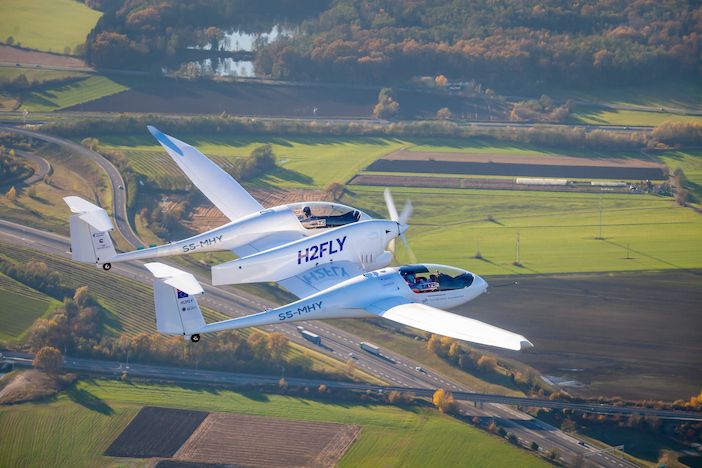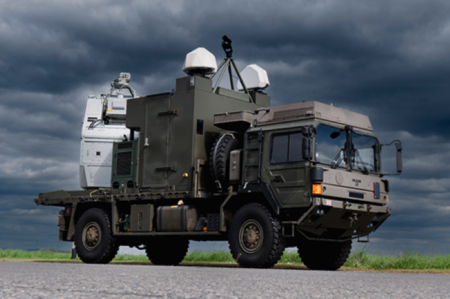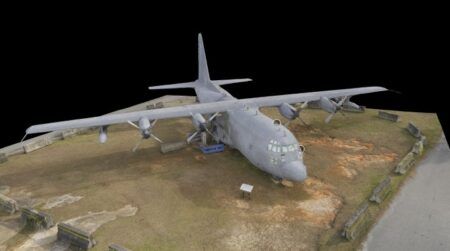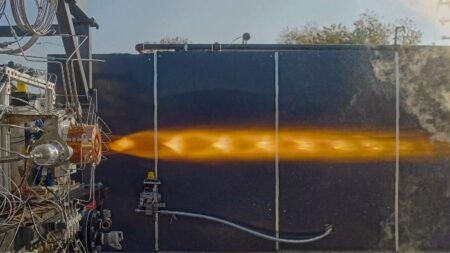H2FLY is to lead a follow-on research program that will increase the output of its hydrogen fuel cell system so it can power larger regional aircraft.
Last September H2FLY completed the world’s first piloted flight of an electric aircraft powered by liquid hydrogen as part of an EU-funded research program called HEAVEN. The HY4 demonstrator aircraft’s propulsion system used in the program had an 80kW output.
Fuel cell systems that use liquified, cryogenic hydrogen have significantly lower tank weights and volume compared to ones that use pressurized gaseous hydrogen storage. Engineers hope that the use of liquified hydrogen will enable increased aircraft range and payload capacity for fuel cell-powered aircraft.
The latest project BALIS 2.0, will be led by H2FLY and supported by the German Aerospace Center (DLR) and Diehl Aerospace. It will develop and test a fuel cell system with an output of 350kW intended to power regional aircraft of between 40 – 80 seats.
The German Government is funding the €9.3 million (US$10 million) research program.
The fuel cell system is set to be tested on the ground at Stuttgart Airport for the first time in 2025.
H2FLY will be responsible for the development and setup of the fuel cell system. Engineers from DLR will work on the integration of fuel cell systems in the megawatt-class range with the electric powertrain and how to optimise the overall system operation.
Meanwhile, Diehl Aerospace will continue to develop its technology for integrating and scaling fuel cell systems.

H2FLY was acquired by leading USA-based eVTOL aircraft developer Joby Aviation in 2021.
Josef Kallo, co-founder and CEO of H2FLY said, “Federal funding for BALIS 2.0 demonstrates the growing significance of hydrogen fuel cell systems as a viable solution for clean aviation. The project insights will propel the development of megawatt-class powertrains, significantly accelerating the transition to sustainable, zero-emission flight.”
Prof Dr André Thess, head of the DLR institute of engineering thermodynamics said, “The BALIS 2.0 project will achieve another important milestone towards deploying new technologies on the path to sustainable mobility. Our research infrastructure allows us to test megawatt-class systems, taking us a step closer to achieving DLR’s vision.”
Florian Maier, president and CEO of Diehl Aerospace said, “Our contribution to the BALIS 2.0 project underlines the important role of the equipment industry in the development of innovative and eco-efficient aircraft systems and propulsion technologies. We are proud to be able to support such an important research project for a more sustainable aviation with our experience and technology.”





